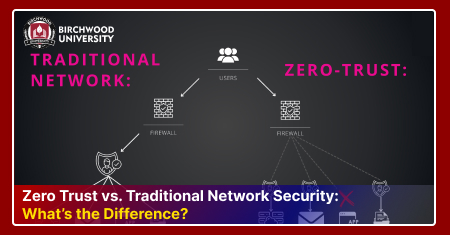Elevating Data Science Analytics: Master of Science in Data Science Demystified
Apr 16, 2024The digital age has ushered in a deluge of data. Organizations of all sizes are accumulating information at an unprecedented rate but without the ability to utilize the hidden potential within, this data remains a vast, untapped resource. This is where the transformative power of data science comes into play. Data science bridges the gap between computer science, statistics, and domain knowledge, empowering professionals to extract valuable insights and translate them into actionable strategies.
The Data Science Imperative:
Data science has emerged as a critical discipline across diverse industries. From optimizing marketing campaigns and streamlining logistics to identifying financial fraud and predicting customer behavior, data science provides a powerful toolkit for solving complex problems and driving informed decision-making. Data scientists are the architects of this transformation, wielding their expertise to unlock the secrets buried within datasets.
Master of Science in Data Science:
For individuals seeking to propel their careers to the forefront of data science, a Master of Science in Data Science (MSDA) program can be a transformative investment. This postgraduate degree delves deep into the core principles and methodologies of data science, equipping graduates with the necessary expertise to tackle real-world challenges.
The MSDS Program: A Structured Learning
An MSDS program, typically spanning 1-2 years, offers a comprehensive curriculum that balances theoretical knowledge with practica; application. Here's a closer look at what you can expect:
- Core Curriculum: The foundation of the program is built upon a series of core courses designed to provide a strong base in statistics, probability, machine learning, data mining, and big data technologies. You'll delve into programming languages essential for data manipulation and analysis, such as Python and R. Effective communication of insights is vital, and the program often incorporates coursework on data visualization techniques to ensure you can clearly present your findings to stakeholders.
- Specialization Options: Many programs offer specialization tracks that allow you to tailor your education to your specific career aspirations. These tracks may focus on areas like healthcare analytics, marketing analytics, or financial modeling, providing in-depth knowledge of industry-specific data sciecne appllication.
- Capstone Project: The capestone project is the culminating experience of the program. Here, you'll have the opportunity to apply your newly acquired knowledge to a real-world data science problem. This projects provides invaluable hands0on experience, allowing you to refine your skills and showcase your capabilities to potential employers.
The Essential Skills of a Data Analyst:
Data science is a multifaceted field, and success requires a blend of both hard and soft skills. While an MSDA program equips you with the technical foundation, a strong foundation in soft skills is essential for excelling in this profession:
Technical Skills:
- Proficiency in programming Language (Python, R, SQL): These languages are the tools of the trade, enabling you to manipulate, clean, and analyze data.
- Mastery of Machine Learning Algorithms: Building models that can learn from data and generate predictions is made possible by machine learning, which is the foundation of many data science applications.
- Expertise in Data Visualization Tools: Effective data visualization skills are crucial for communicating your findings in a clear and impactful way.
- Statistical Analysis Techniques: Statistical analysis is the foundation for extracting meaningful insights from data.
- Familiarity with Big Data Technologies (Hadoop, Spark): Big data technologies are essential for handling large and complex datasets.
Soft Skills:
- Critical Thinking and Problem-Solving: Data science involves tackling complex technical concepts clearly and concisely, both verbally and in writing, which is critical for collaborating with team members and stakeholders.
- Communicate (Written and Verbal): The ability to communicate complex technical concepts clearly and concisely, both verbally and in writing, is critical for collaborating with team members and stakeholders.
- Collaboration and Teamwork: Data science often involves collaboration with other professionals from diverse backgrounds. Strong teamwork and collaboration skills are essential for success.
- Data Curiosity and Passion for Learning: Data science is a rapidly evolving field. Maintaining a constant thirst for knowledge and a willingness to learn new things are essential for staying ahead of the curve.
- Bussiness Acumen: Understanding the business context of your data analysis allows you to connect insights to actionable strategies, adding value beyond technical expertise.
Is an MSDS Program the Right Choice for you?
An MSDS program is an excellent choice for individuals with a strong quantitative background and an aptitude for computer programming. Before embarking on this journey, consider these factors to determine if they align with your goals:
- Existing Skills and Experience: Do you possess a solid foundation in math, statistics, and programming? Prior experience in data analysis or a related field can be beneficial, but not always mandatory. Many programs offer preparatory courses or bridge programs to help students with non-quantitative backgrounds transition smoothly.
- Career Goals: A crucial step is to identify your desired niche within the data science industry. Do you envision yourself working in healthcare, finance, marketing, or another sector altogether? Aligning your program choice with your career aspirations can help you select a specialization track that aligns with your long-term goals.
- Time and Financial Commitment: MSDS programs are a significant investment in terms of time and finances. Carefully evaluate your personal and professional circumstances, including your current workload and financial situation, before committing to a program. Many universities offer flexible learning options, such as part-time enrollment or online programs, to cater to working professionals.
Investing in the Future:
The data science landscape is constantly evolving, with new technologies and methodologies emerging at a rapid pace. To maintain your competitive edge and stay relevant in this dynamic field, a commitment to lifelong learning is essential. Here are some strategies to cultivate a continuous learning mindset:
- Engage with Online Resources: The internet offers a wealth of resources for data science enthusiasts. Take advantage of the online platform which offers tutorials, courses, and certifications in various data science specializations.
- Contribute to Open Source Projects: Participating in open-source projects provides a valuable opportunity to collaborate with other data scientists, learn new skills, and build your portfolio. This hands-on experience can demonstrate your expertise to potential employers.
A Master of Science in Data Science can pave the way for a fulfilling career in this exciting and in-demand field. By combining technical expertise with critical thinking, strong communication skills, and a passion for continuous learning, you'll be well-positioned to utilize the benefits of data.







